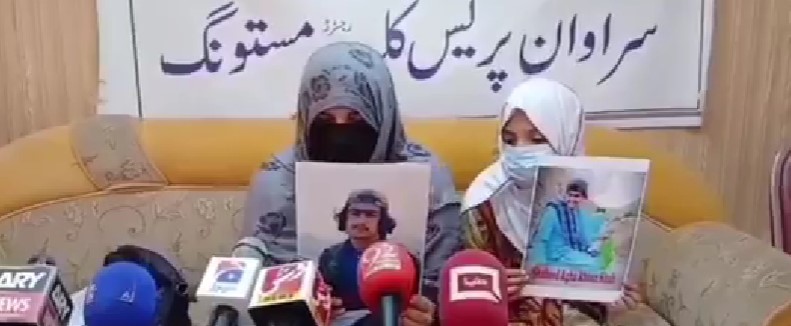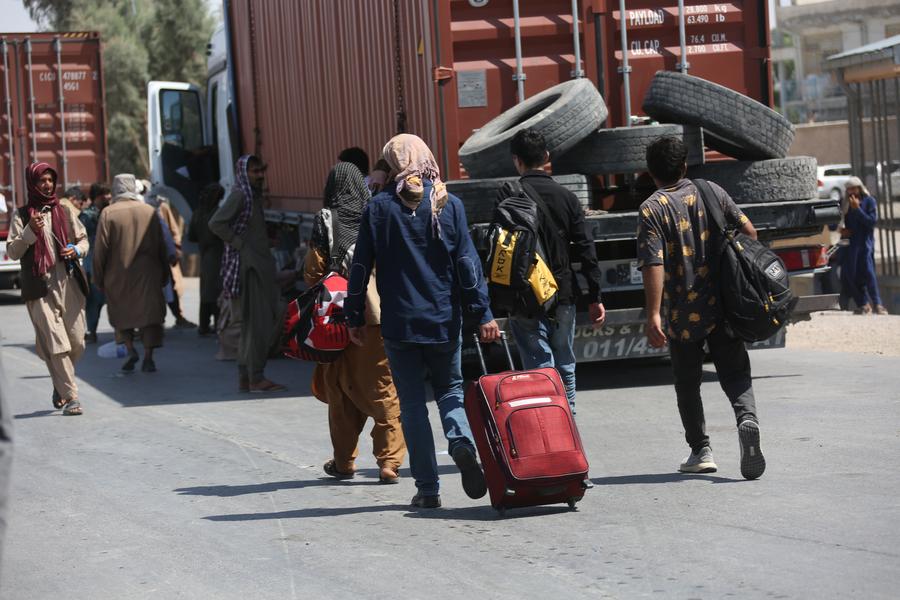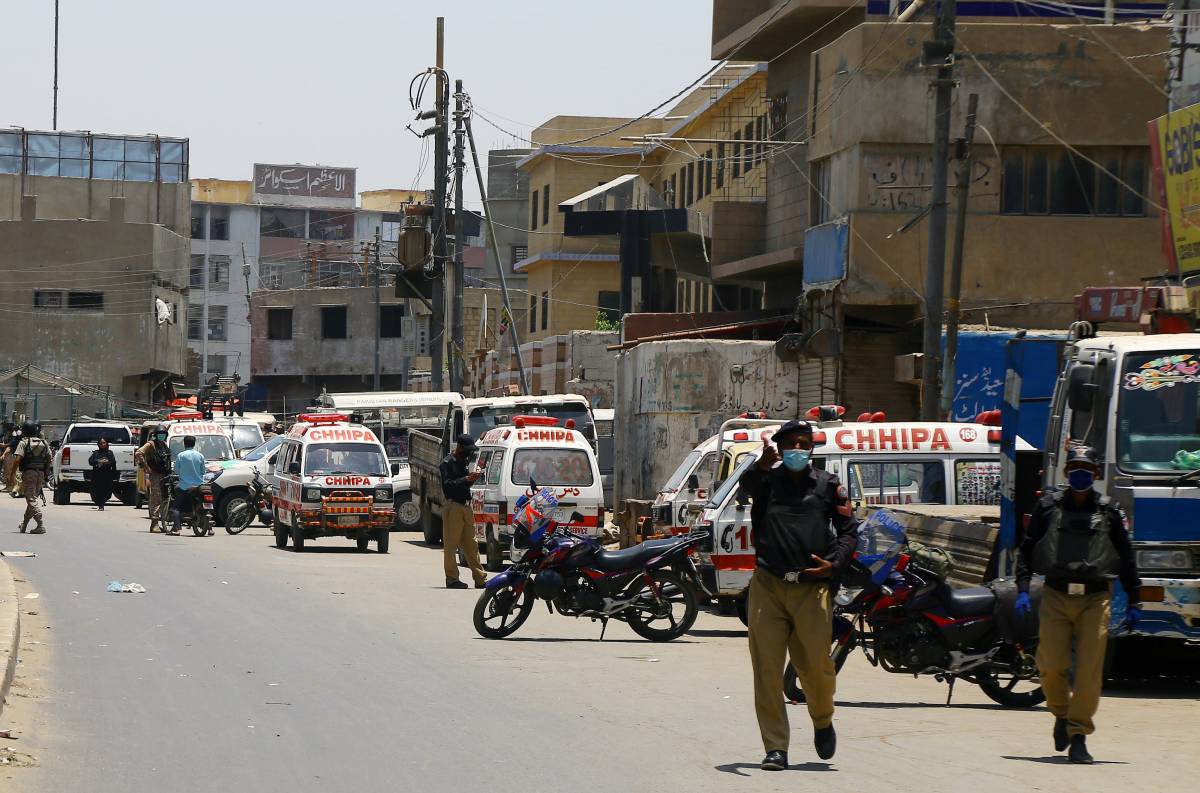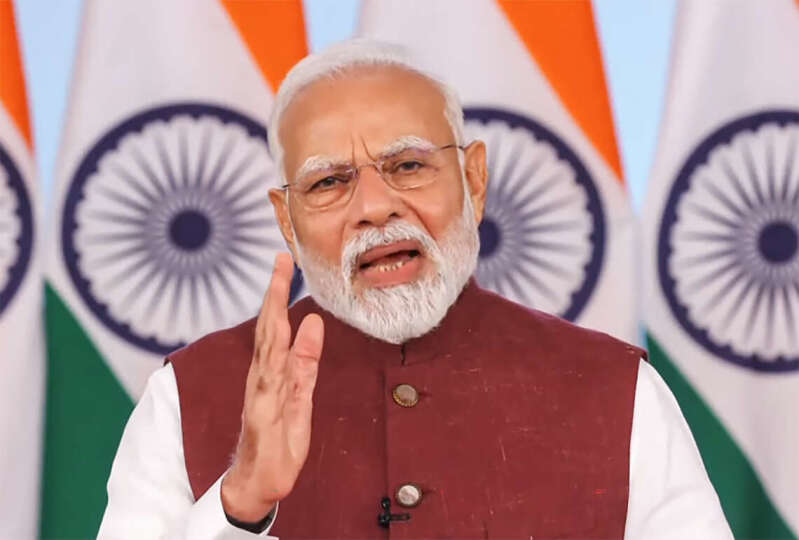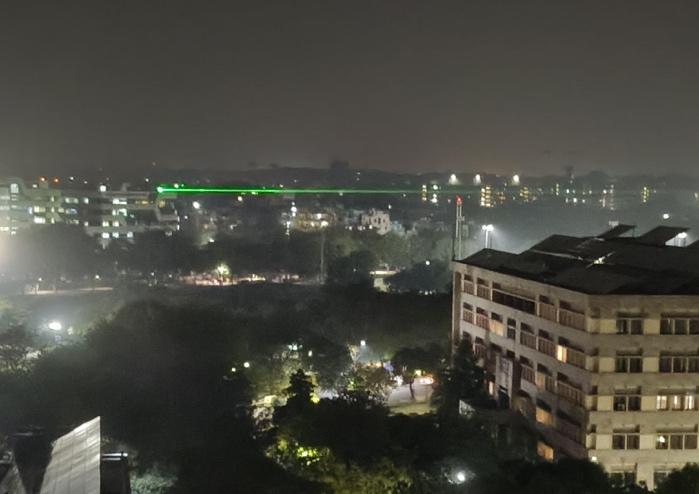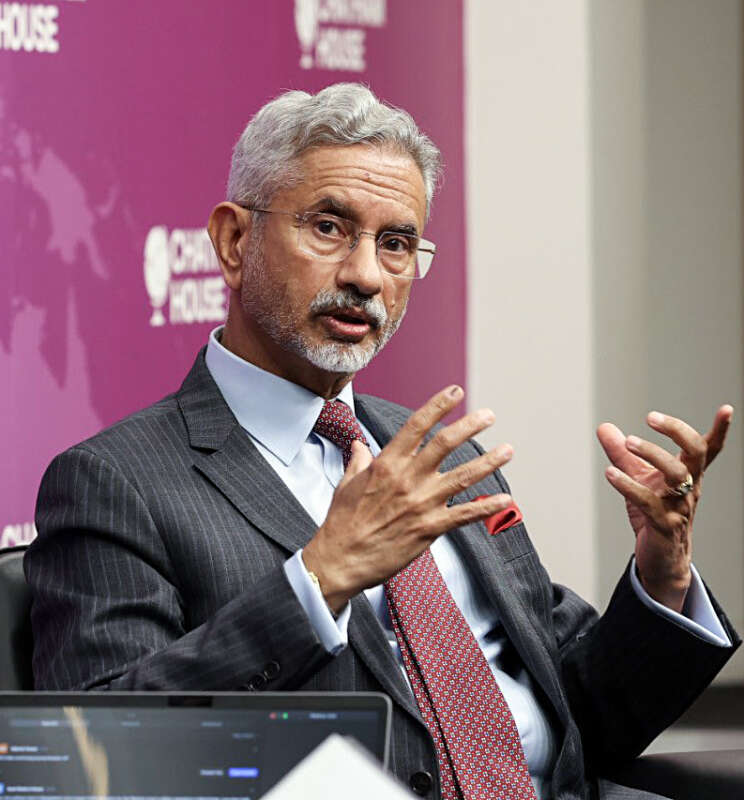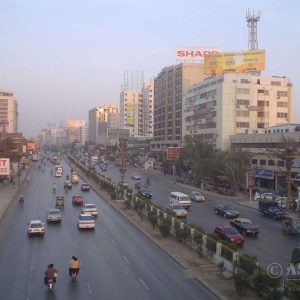The grave terrorist threat confronting Pakistan is evident from the Bannu hostage crisis ( Dec 19-21) followed by the Islamabad suicide attack by two suicide bombers including a female at I-10/4 on Dec 23 in which one policeman was killed and six others injured….reports Asian Lite News
The recent terrorist strike in Pakistan by the Tehreek-e-Taliban Pakistan (TTP) in the Bannu region and Sunday’s multiple bomb blasts that took place in Islamabad’s I-10 sector shows that terror incidents have increased particularly after TTP called off their ceasefire with the government in November.
Pakistan has become highly vulnerable due to the political mess created by ex-premier and PTI chairman Imran Khan in the last eight months after his ouster from power and coupled with the country’s crippled economy. Security is being challenged daily by the Tehreek-e-Taliban Pakistan (TTP) and other terrorist groups including Daesh/IS-K and Baloch insurgents.
Imran’s antics to push the state to the wall for his ultimate quest for power, no matter if the country is destroyed appear unstoppable. He is not ready to reconcile that his dream of remaining in power till 2030, if not for a lifetime, under the Imran project envisaged by Pakistan military establishment, has been wrapped up by the creators of the project due to his utter incompetence, inefficiency and stubbornness domestically and globally.
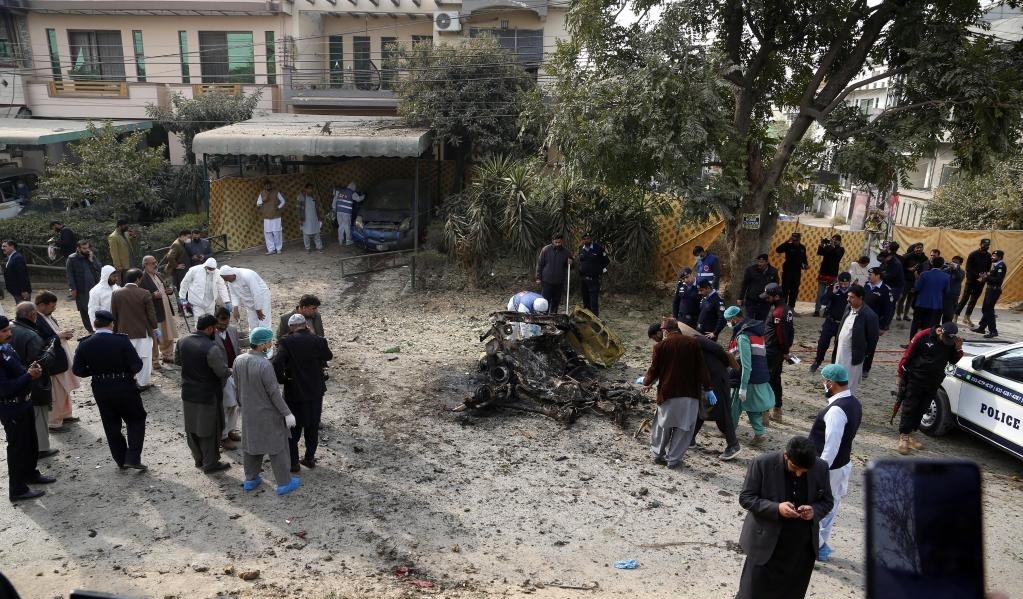
Immediately after the new Army Chief General Asim Munir whose appointment was blocked by the Imran-Faiz duo till the last moment assumed office, the TTP terrorist, who allegedly have been favourites of the duo, has gone berserk with alarmingly heightened activities in Khyber Pakhtunkhwa (KPK), Balochistan and even in twin cities of Islamabad and Rawalpindi.
The grave terrorist threat confronting Pakistan is evident from the Bannu hostage crisis ( Dec 19-21) followed by the Islamabad suicide attack by two suicide bombers including a female at I-10/4 on Dec 23 in which one policeman was killed and six others injured.
The Bannu operation ended in the wee hours of Dec 21 with 25 militants killed, three captured and seven surrendered. The JCO, who was held hostage and three soldiers were also killed.
Pakistani analysts and observers are concerned over the apathy of the KPK government and said that it is non-serious over increasing terrorist activities in the province and is focused on pleasing and serving Imran at Zaman Park residence and playing politics at his behest.
All resources are being diverted either to Zaman Park or Bani Gala. KPK CM Mehmood Khan along with his cabinet is guarding Zaman Park with other PTI leaders.
Some sections of people have started asking for accountability of those re-activating the TTP. Prominent media personalities including Talat Hussain urged the military establishment to openly stand by the govt to tackle the menace of terrorism, adding that it should not shy away in the guise of “neutrality”. PTI has already dismissed its narrative of neutrality.
Another journalist Azaz Syed reacting to the Islamabad suicide attack informed that Islamabad police had issued a threat alert a couple of days ago about a possible attack in Islamabad.
He opined that terrorism can be tackled only after political instability and polarization come to an end. He revealed that TTP has launched a drive in Afghanistan for the enrollment of suicide bombers for attacks in Pakistan in the coming days.
He said that Pakistan is in a state of limited war on the western border and a new military operation is in the offing. He revealed that around 1000 terrorist incidents have taken place this year.
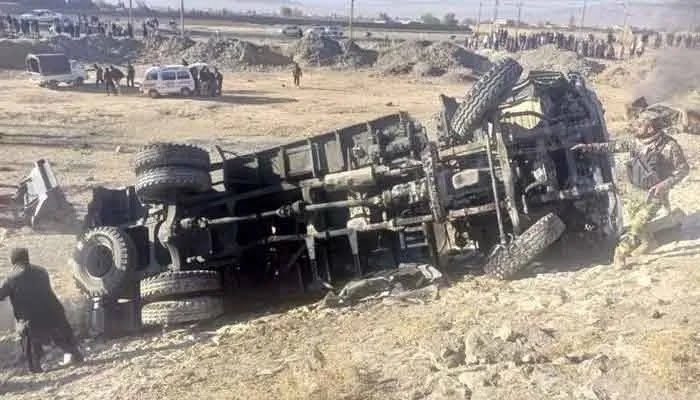
Over 925 terrorist attacks had been carried out by the TTP and over 31 by Daesh. Ninety-five per cent of said terrorist acts took place in KPK. Over 110 policemen, 90-95 security personnel, around 235 civilians and pro-govt people and 210 terrorists have been killed.
Saleem Safi, an expert on the Taliban issue and Islamists while commenting on the Islamabad incident said that following the suicide attack in the I-10/4 sector of Islamabad, no one in Pakistan should have any doubt that terrorist acts will remain confined to KPK alone.
“If the government, the army, and intelligence agencies don’t realise the gravity of the threat looming large on the country, people can witness the 2014 scenario again,” said Safi.
He said that it is clear that Pakistani policymakers had evolved a policy based on their perceptions and desires regarding the Afghan Taliban and TTP. Through right-wing parties, PTI and defence analysts so much propaganda was made that every Pakistani started believing them. The perception developed was that the TTA and the TTP had no mutual linkage. The TTP has been created by the RAW and Afghan intelligence agencies. Some people attributed it to the US, ignoring that all Ameers of TTP had been killed in US drone strikes.
Pakistanis were given a lollypop that as soon as the Pak-friendly Afghan Taliban emerge successful in Afghanistan; organisations like TTP will cease to exist automatically. This was the reason Pakistan was the only country where the Taliban’s takeover of Kabul was celebrated.
It was Pakistan and the then PM Imran Khan who announced that the Afghans have broken shackles of the slavery. Pak media stormed Kabul for celebrating this victory, the way western media had arrived there in a victorious manner after the American takeover of Kabul.
The second blunder is that Pak policymakers neither try to find out the root cause of any problem nor try to root out it. It occurred in the case of TTP too. The TTP was either temporarily suppressed through military operations or pushed to Afghanistan.
The sentence “we have broken the backbone of the terrorists” had been made a common saying but the harsh reality was that nothing significant had been broken.
In fact, American drones had inflicted damages on the TTP. No TTP leader could be targeted through Pak military operations. All top TTP commanders including Maulana Nek Muhammad, Baitullah Mehsud, Hakeemullah Mehsud and Maulana Fazlullah were killed in drone strikes. Because of drones, it had become highly difficult for TTP leadership to establish contacts or gather in one place. After the pullout of the US, this fear became minimal.
The question is where and why the TTP resurfaced with so much might and ferocity. Some of the reasons are:
Afghan and Pak Taliban carry identical ideologies and beliefs. Their perception of jihad and Qitaal (fighting/killing) is the same. Pak Taliban took up arms in support of its Afghan counterparts. When they saw that the Afghan Taliban have defeated powers like the US and NATO through armed struggle, the morale of TTP and other militant groups got a strong boost.
The TTP had got divided into various factions over the years. Pakistani Taliban had formed a separate group called Jamaatul Ahrar under the leadership of Abdul Wali @ Khalid Khurasani. Hafiz Saeed (of Kurram Agency) and others had joined Daesh.
Mufti Noor Wali, who besides being a Mehsud and a religious scholar, after becoming Ameer of TTP not only reunited all factions but also inducted new groups into the TTP. This process still continues. A couple of days ago, a militant group from the Makran Division of Balochistan under command of Mazar Baloch pledged allegiance to Mufti Noor Wali.
On the other hand, no attention was paid to this issue during the Imran Khan government’s time. Regrettably, this issue lagged much behind in the tenure of the present govt. No single day has passed since the last year when no terrorist act has been carried out in KPK.
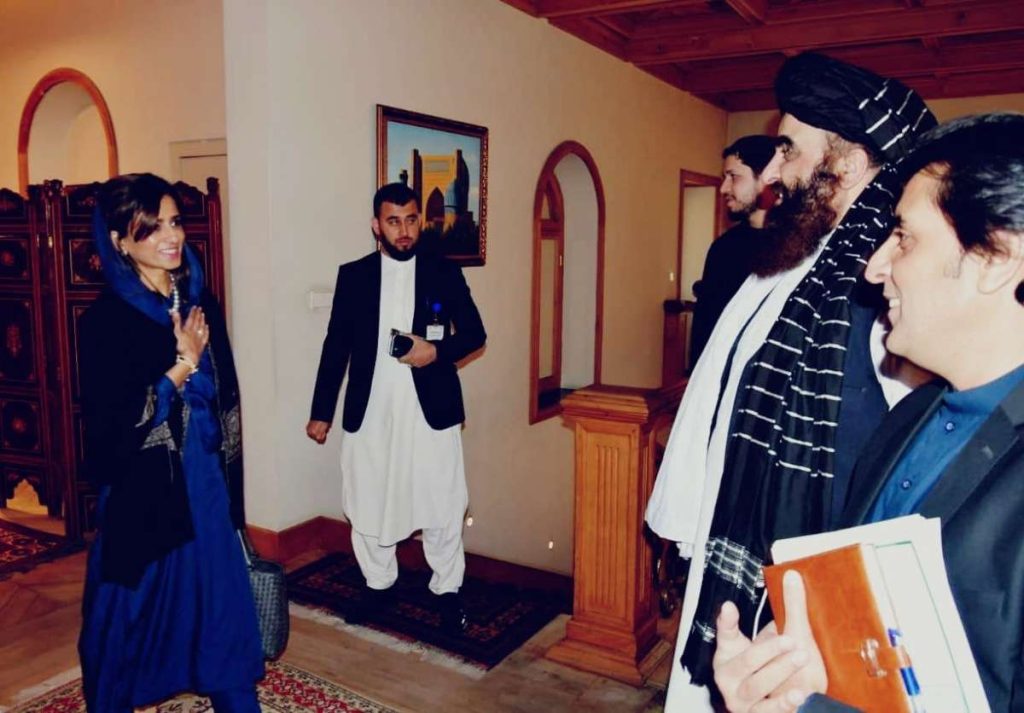
Moreover, Pak policy and perception makers had convinced that the TTP enjoys the backing of the Karzai and Ashraf Ghani governments. Still, the fact was that around 4000 TTP militants including prominent TTP leader from Bajaur Maulvi Faqir Muhammad, who were languishing in Afghan prisons were released by the Afghan Taliban. After the release, they rejoined the TTP.
Over the years, Pakistani Taliban had established their safe havens in the caves and mountains of provinces of Kunar, Nooristan, Paktia, Nangarhar and Khost but following the fall of Kabul, the whole of Afghanistan was at their disposal. They can now sit together, hold consultations and chalk out plans. A large strength of the Taliban has shifted to tribal districts and areas like Swat.
The TTP militants and their sympathizers were present in various areas of Pakistan in the form of sleeper cells but they were silent in absence of contact with their leadership. After the Taliban’s victory, they also shifted to Afghanistan and become active along with the leadership.
After American withdrawal from Afghanistan, TTP’s resources witnessed an unprecedented increase and they got the most sophisticated weapons and armouries, abandoned by the Americans because of the areas in which they were present or putting up resistance, they got these arms as booty.
The American pull-out and advent of the Taliban warrant great sagacity and strategies on the behalf of Pakistan but the Imran government displayed utmost haste.
A direct dialogue was held with the TTP at the DG ISI level wherein intangible promises were made. The irony after the change of government at the federal level was that the issue of dialogue rested with the Corps Commander Peshawar and KPK government, while the federal govt acted as a silent spectator.
Even now the PM, the FM and govt functionaries like Maulana Fazlur Rehman have the least interest in this matter. The Bannu CTD centre where several security forces personnel had been held hostage by the terrorists is the latest example.
In short, Pakistan rulers and political classes are taking the matter very lightly which on the contrary is a grave issue. It also requires all-out political and diplomatic endeavours and consensus among various governments and institutions. (ANI)



